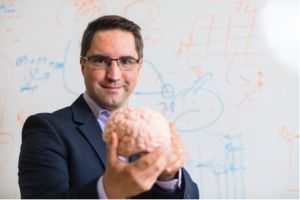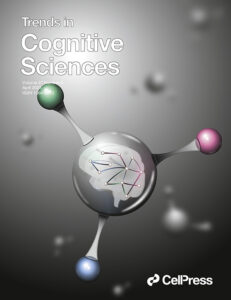
Greetings from the MCWG!
Thank you to everyone who joined us for April’s MCOS with Mattia Veronese PhD & Mario Severino! Missed it? The recording is available here.
Please join us for the May MCOS featuring a talk by Simon Eickhoff PhD, Heinrich-Heine University. More details and key announcements below!
Date: May 23rd, 2025
Time: 15:00 CET, 09:00 EDT
Registration: Please register here.
Title: Great expectations but a bumpy road: Caveats in neuroimaging analyses and modelling.
Speaker: Simon Eickhoff, PhD
Abstract: The increasing availability of large cohorts and tools for multivariate statistical learning, allowing the prediction of individual cognitive or clinical phenotypes in new subjects, started a revolution towards neuroimaging applications in precision medicine. While the field has enjoyed a lot of enthusiasm recently, the road towards translation and re-life applications may be considerably more challenging than often acknowledged. Following a short overview on the motivation and perspectives, the major part of my talk will focus on several critical yet often underappreciated challenges for such endeavors. These include on the one hand technical and biological aspects that may undermine the validity of prediction results, due to the inherent low-dimensional structure of biological variability. On the other hand, ethical, legal and societal aspects will ultimately shape practical adaptation but need stronger consideration in the development of new pipelines if these are to move beyond proof-of-concept work.

Simon Eickhoff is a full professor and chair of the Institute for Systems Neuroscience at the Heinrich-Heine University in Düsseldorf and the director of the Institute of Neuroscience and Medicine (INM-7, Brain and Behavior) at the Forschungszentrum Jülich. He is furthermore a visiting professor at the Chinese Academy of Science Institute of Automation. Working at the interface between neuroanatomy, data-science and brain medicine, he aims to obtain a more detailed characterization of the organization of the human brain and its inter-individual variability in order to better understand its changes in advanced age as well as neurological and psychiatric disorders. This goal is pursued by the development and application of novel analysis tools and approaches for large-scale, multi-modal analysis of brain structure, function and connectivity as well as by machine-learning for single subject prediction of cognitive and socio-affective traits and ultimately precision medicine.
The MCOS promotes rigor in research and resource sharing. We aim to hold MCOS every third Friday of the month, subject to change due to speaker availability. Please stay tuned for MCOS updates and reminders on social media! Thank you!
Heading to Brain & Brain PET 2025 in Seoul (June 1–4)?
We’ve compiled a list of events and presentations at the meeting that highlight recent developments in molecular connectivity. We hope to see you there!
🗓 June 1 | 14:00–17:30
Moderator: Mark Lubberink
Speakers: Igor Yakushev, Giulia Vallini, Sharna Jamadar, Murray Reed
🗓 June 4 | 11:00–12:30
Organizer: Sharna Jamadar
Featured Talks:
Exercise Effects on Abnormal Discordance Between Glucose Metabolism and Cerebral Blood Flow in Parkinson’s Disease
Connor W. J. Bevington, Jess McKenzie, Sahib Dhaliwal, Teresa Liu-Ambrose, A. Jon Stoessl, Vesna Sossi
Exercise Partially Restores Altered Metabolic Connectivity in Parkinson’s Disease
Connor W. J. Bevington, Erik Reimers, Jess McKenzie, Sahib Dhaliwal, Teresa Liu-Ambrose, A. Jon Stoessl, Vesna Sossi
Metabolic Connectivity Alterations in Post-COVID Condition
Patients with post-COVID condition (PCC) exhibit lasting reorganization of brain metabolic connectivity, according to our recent study using ¹⁸F-FDG PET. These findings shed new light on the long-term effects of COVID-19 on brain function.
Read the full study in EJNMMI Research
Key Findings:
The MCWG Outreach Council invites you to submit announcements or information about papers, conferences, presentations or other events or news related to brain and molecular connectivity as well as any positions available or job opportunities that you wish to publicize and share with the community!
Please submit any material for consideration by the final day of each month using this form – thank you!

The MCWG is made up of four international and multidisciplinary councils dedicated to promoting molecular connectivity research via dissemination of methods, results, collaboration, and resource sharing (e.g. datasets, tools) within the scientific community. We encourage the neuroscientific community to take an integrative perspective in study of the brain connectome, where various methods including MRI-based techniques, electrophysiological tools, and molecular imaging advance our understanding of the brain. Please find fundamental questions outlined here: “Brain connectomics: time for a molecular imaging perspective?”
Our website can be found here. We also invite you to join the MCWG!